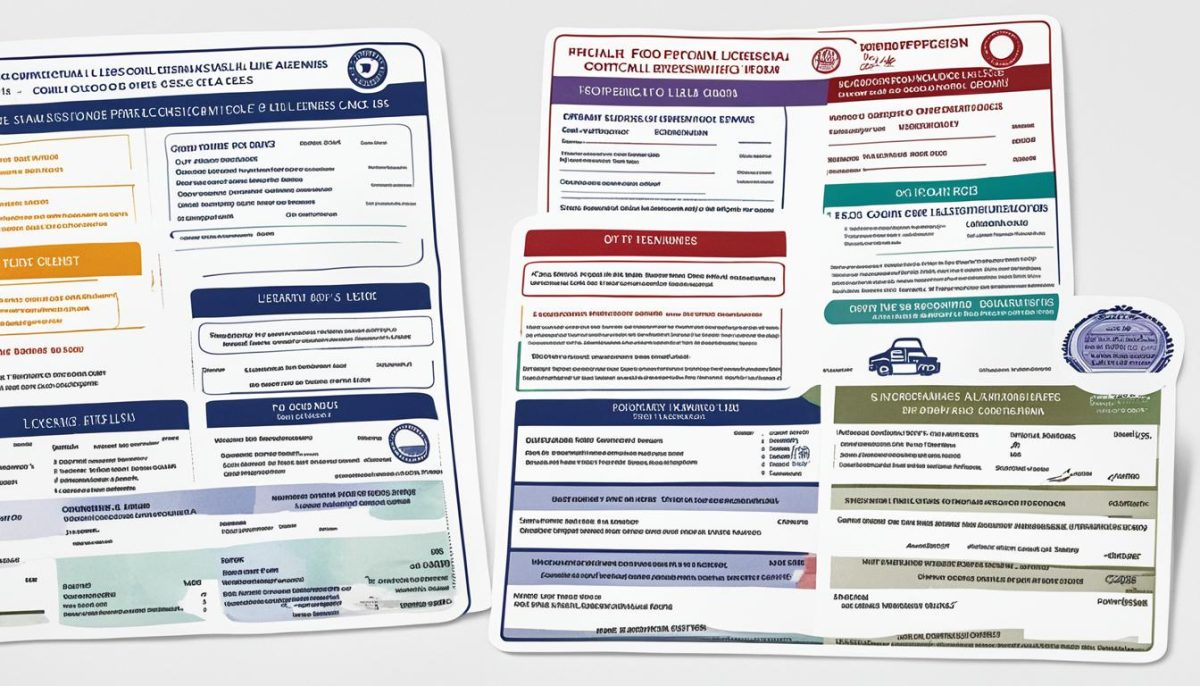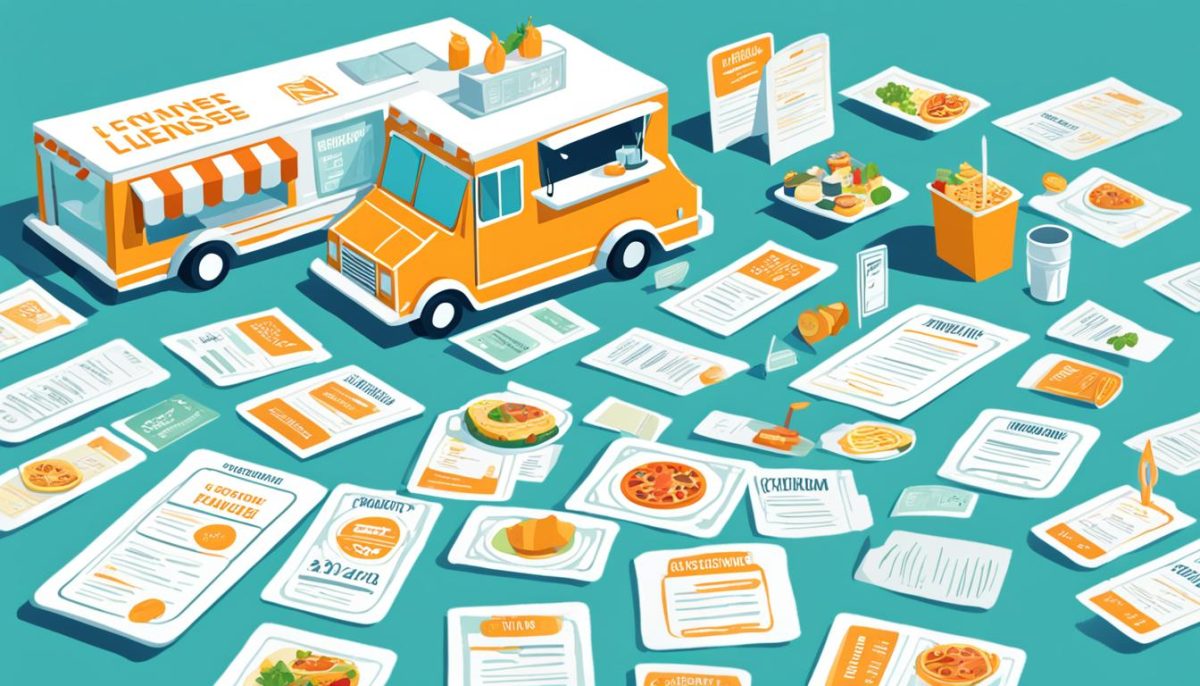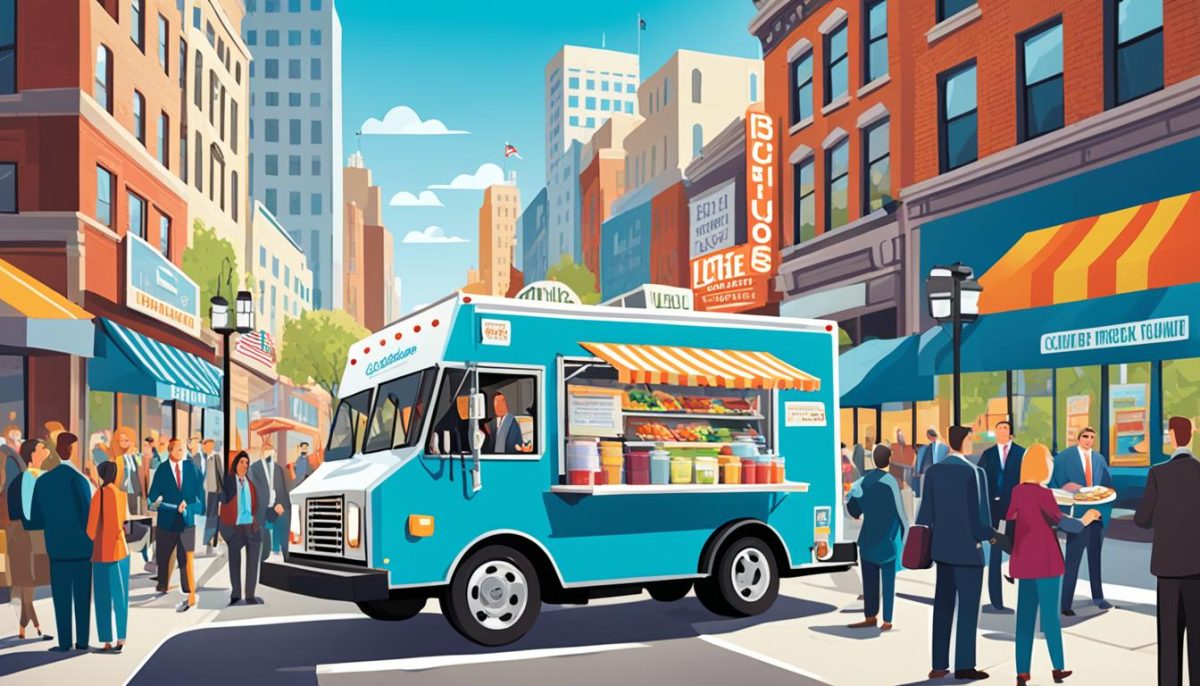Starting a food truck business can be an exciting venture, but it’s essential to understand the licensing requirements involved. In this section, we will explore the various licenses that are necessary to legally operate a food truck. Whether you’re just getting started or already have a concept in mind, knowing the licenses required can help you navigate the process smoothly.
Obtaining the right licenses is crucial to ensure compliance with health regulations, safety standards, and local ordinances. By obtaining the necessary permits, you can operate your food truck confidently and avoid any legal complications down the road.
From basic permits and health department certifications to specialized licenses for specific offerings, we will cover it all. Understanding the licensing process and securing the appropriate licenses can set you on the path to a successful food truck business.
Throughout this article, we will provide valuable information to guide you through the licensing journey, helping you navigate the necessary steps to start your food truck business with confidence. Let’s dive into the world of food truck licenses and get your culinary dreams on the road!
Understanding the Basic Licenses for Your Food Truck
When it comes to starting a food truck business, obtaining the necessary licenses is a crucial step in ensuring your operations are legal and compliant. In this section, we will dive into the basic licenses that every food truck owner should have. These licenses are essential for maintaining a safe and regulated environment for both your business and your customers.
Permits
One of the primary licenses you will need for your food truck is a permit. Permits allow you to legally park your food truck and sell your products in designated areas. The requirements for obtaining a permit may vary depending on your location. It is important to research and comply with the specific regulations set by your local government or municipality.
Health Department Certifications
To ensure food safety and hygiene, health department certifications are a must for every food truck operator. These certifications demonstrate that your food truck meets the necessary health and safety standards. They typically involve inspections of your food preparation and storage areas, as well as a review of your food handling practices.
Other Essential Licenses
In addition to permits and health department certifications, there are other essential licenses that you may need to operate your food truck legally. These licenses can vary based on factors such as the type of food you serve and the specific location where you operate. Some examples include:
- Business license: This license allows you to legally operate your food truck as a business entity.
- Seller’s permit: If you sell taxable items, such as prepared meals, you will typically need a seller’s permit to collect and remit sales tax.
- Fire department clearance: Fire departments often require food trucks to meet certain safety requirements, such as having fire extinguishers and proper ventilation systems.
- Special event permits: If you plan to participate in special events or festivals, you may need additional permits specific to those events.
It is important to consult with local authorities and regulatory agencies to determine the specific licenses and permits you need for your food truck business. Compliance with these requirements will not only keep you in good standing with the law but also instill confidence in your customers regarding the quality and safety of your products.
| License/Permit | Description |
|---|---|
| Permits | Allow you to legally park and sell in designated areas |
| Health Department Certifications | Ensure food safety and hygiene |
| Business License | Legally operate your food truck as a business |
| Seller’s Permit | Collect and remit sales tax for taxable items |
| Fire Department Clearance | Comply with safety requirements |
| Special Event Permits | Participate in special events or festivals |
By ensuring you have the basic licenses and permits in place, you can operate your food truck business with confidence, knowing that you are meeting all regulatory requirements. Now that you understand the importance of these licenses, let’s move on to discussing the specialized licenses for food preparation and sale in the next section.
Specialized Licenses for Food Preparation and Sale
In addition to the basic licenses required to operate a food truck, there are specialized licenses that you may need to consider, depending on your specific food offerings. These specialized licenses are essential for specific activities such as selling alcohol, preparing and selling food that requires special permits, and operating in designated areas. By obtaining these specialized licenses, you can ensure that your food truck business is compliant with relevant regulations and can operate smoothly.
Selling Alcohol:
If you plan to offer alcoholic beverages from your food truck, you will need to obtain a liquor license. The requirements and application process for a liquor license can vary depending on the state and locality in which you operate. It is important to familiarize yourself with the specific regulations and guidelines to obtain the necessary license.
Preparing and Selling Food That Requires Special Permits:
Some types of food preparation or sale may require special permits or certifications. For example, if you plan to sell homemade canned goods or products made with raw or unpasteurized ingredients, you may need to obtain specific permits to ensure food safety and compliance with health regulations. Research the requirements in your area and obtain the necessary documentation to legally sell these specialized food items.
Operating in Designated Areas:
Depending on your location, there may be designated areas or events where food trucks are allowed to operate. These areas may have their own regulations and licensing requirements. To participate in these locations or events, you may need to obtain permits or licenses specific to those areas. Research the local ordinances and regulations to ensure compliance and participate in these high-traffic areas.
It is important to remember that the specialized licenses required for food preparation and sale can vary depending on your location and the nature of your food truck business. Conduct thorough research, consult with local authorities, and work with legal professionals if necessary to ensure that you have all the necessary licenses and permits.

Financial and Operational Licensing Considerations
When starting a food truck business, it is crucial to consider the financial and operational aspects of licensing. Acquiring the necessary business licenses, insurance coverage, and other permits is essential for smooth operations and compliance with regulations.
One important consideration is obtaining the appropriate business licenses. These licenses will vary depending on your location and the specific requirements of your food truck business. Research the licenses required in your area, such as a general business license, food service license, and mobile vendor permit.
In addition to business licenses, it is vital to secure insurance coverage. Food trucks face various risks, including accidents, foodborne illnesses, and damage to equipment. By obtaining the right insurance policies, such as general liability insurance and commercial auto insurance, you can protect your business and mitigate potential financial losses.
Lastly, don’t forget about other necessary permits and certifications. These may include health department certifications, zoning permits, and fire safety inspections. Ensuring compliance with all regulations will help you avoid penalties and potential disruptions to your food truck operations.



